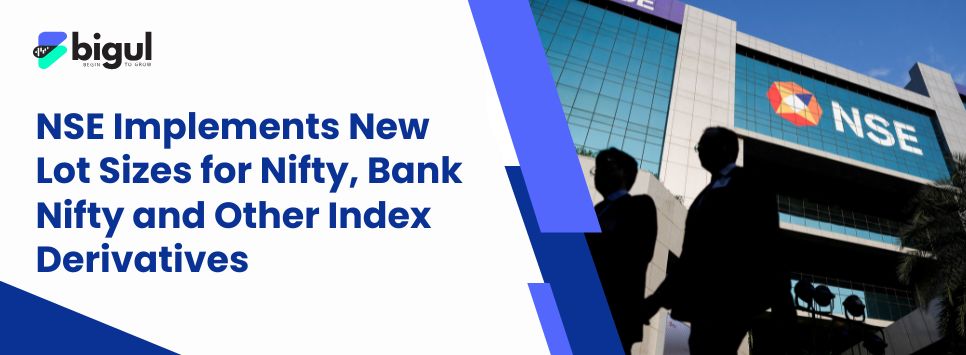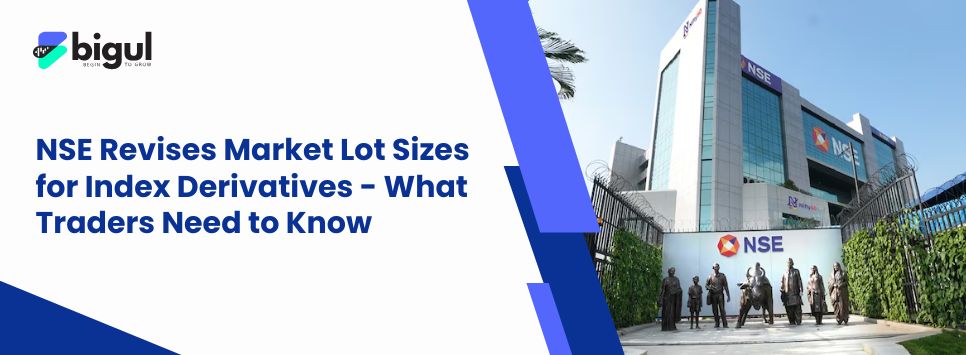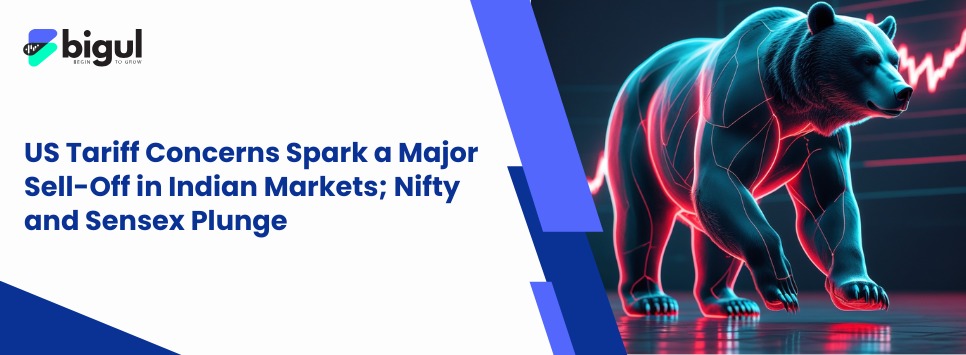The Indian stock market observed a bloodbath on April 7, 2025, as Nifty and Sensex dropped sharply. The drop erased a significant wealth among the investors, sending shockwaves across the Indian investor community.
The sell-off was mainly due to the mounting concerns over new US tariffs. This ignited a fear of a global trade war and an incoming economic slowdown. India VIX also surged over 55%, reflecting the heightened market volatility and investor anxiety.
Let’s delve into the reasons behind the market drop, the spike in India VIX, and what lies ahead for Indian markets.
Why Did The Indian Stock Market Plunged?
The main cause of the market fall can be traced to the recent announcement of US president Donald Trump about the tariffs. The reciprocal tariff on imports from India goods is 26%. The policy shift was due to the perceived unfair trade practices.
Sectors like IT, automobiles and Pharmaceuticals are the ones that felt the heat. Indian IT industry may face revenue reduction and contract losses because most of its profits stem from the United States market. The automobile industry faces strong market competition, while the Pharma sector must deal with increasing production expenses, which lead to low demand for pharmaceutical products. These specific industrial concerns drove general market declines. The
The US' aggressive stance on the trade tariffs may prompt retaliatory measures from other countries like China. This tit for tat situations has raised the specter of full blown global trade war..
The global market experienced devastating losses because of the market-induced uncertainty, which caused the Dow Jones Industrial Average futures to decrease by more than 1,600 points during the prior Sunday evening.
India VIX Surges More Than 57%
India VIX, a significant indicator of volatility, saw a strong surge. On April 7, the VIX surged by more than 57% to its highest level since June 4, 2024. The dramatic surge highlights the growing uncertainty and fear among investors.
India VIX, often called the fear gauge, helps to measure the market expectation volatility over the near term. A rising VIX highlights high volatility and surges risk aversion. It highlights the fact that the investors are shifting away from equities towards the safer assets. This situation it highlights the investors' concerns about the global economic downturn as well as rising trade tensions.
Nifty 50 and Sensex observed the burnt of this sentiment while recording a significant decline. The surge in the volatility was not only limited to India. Asian and European markets revealed a major market decline pattern. The Nikkei index in Japan declined by 9% during this period, and European markets suffered significant drops. The extended sell-off proves that market forces worldwide feel the effects of US tariff policies, which spread economic instability around the entire global financial system.
Future Prospects And The Trade War
Indian markets are facing a challenging and uncertain road ahead. The ongoing trade tensions may precipitate a prolonged period of global economic uncertainty. It may dampen the overall Indian exports, corporate earnings and overall growth. The slowdown may impact the export sectors while potentially leading to prolonged market volatility.
Indian government is adopting a strategic stance while choosing not to retaliate with its tariffs. If this strategy becomes successful, it can offer a lifeline to various industries while boosting the market sentiment. This resolution can help to mitigate some of the damages inflicted due to current tariffs.
Banking, together with consumer durables, maintains strong growth because of the recovering economic situation. The banking sector is an outperforming industry segment alongside consumer durable products that play a fundamental role. The enhanced market flexibility provided by these protective business factors would help stabilise the market in case of future economic disruptions.
Conclusion
Fearful investors caused a market sell-off in Indian markets after learning about upcoming US tariffs. Market concerns emerged about worldwide commercial conflicts and reduced economic expansion. An increase in India VIX indicates that significant investor doubts exist within the market. Investors should monitor the evolving situation while staying alert because they need to both handle market obstacles and seize potential opportunities in the current volatile market conditions.




.jpg)





.jpg)
